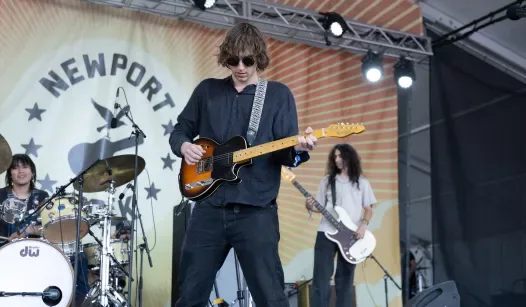The landscape of the music industry has been significantly impacted by economic principles, particularly when it comes to ticket pricing. For fans and concert-goers, the reality is clear: ticket prices are unlikely to decrease until there is a shift in consumer behavior.
In recent years, concert tickets have surged to unprecedented levels, with some fans paying hundreds, if not thousands, of dollars for a single experience. This spike can be attributed to various factors, including increased demand, rising production costs, and the growing popularity of live events. However, the fundamental economic principle at play is simple: as long as fans are willing to pay these inflated prices, the industry will continue to capitalize on their willingness to spend.
The music industry operates within a complex ecosystem where supply and demand dictate pricing. When a highly anticipated artist announces a tour, the demand for tickets skyrockets. This high demand, coupled with a limited supply of seats at venues, allows promoters and artists to set prices at a premium. Fans find themselves in a bidding war for the chance to see their favorite performers live, often leading to inflated prices on secondary markets.
Moreover, the rise of dynamic pricing models has further complicated the ticket purchasing process. This strategy allows ticket sellers to adjust prices in real-time based on demand, meaning that prices can fluctuate dramatically from the moment tickets go on sale until the day of the event. While this model can benefit fans who purchase tickets early, it can also lead to frustration for those who wait, as prices may skyrocket as the event date approaches.
The impact of high ticket prices extends beyond just the immediate financial burden on fans. It raises questions about accessibility and equity within the music industry. Many fans are priced out of attending concerts, particularly in larger cities where ticket prices can reach astronomical levels. This creates a divide between those who can afford to pay for premium experiences and those who cannot, ultimately shaping the live music landscape in ways that may not be sustainable in the long run.
As the industry continues to grapple with these challenges, it is essential for artists, promoters, and fans to engage in a dialogue about the future of ticket pricing. Potential solutions could include implementing tiered pricing structures, offering more affordable ticket options, or increasing transparency around pricing practices. By addressing these issues, the music industry can work towards a more equitable system that allows fans from all backgrounds to enjoy live music.
In conclusion, the relationship between ticket prices and consumer willingness to pay is a classic example of basic economics at work in the music industry. Until fans collectively decide to resist the urge to pay inflated prices, the trend of high ticket costs is likely to persist. It is a complex issue that requires thoughtful consideration and action from all stakeholders involved to ensure the continued vibrancy and accessibility of live music experiences for everyone.
